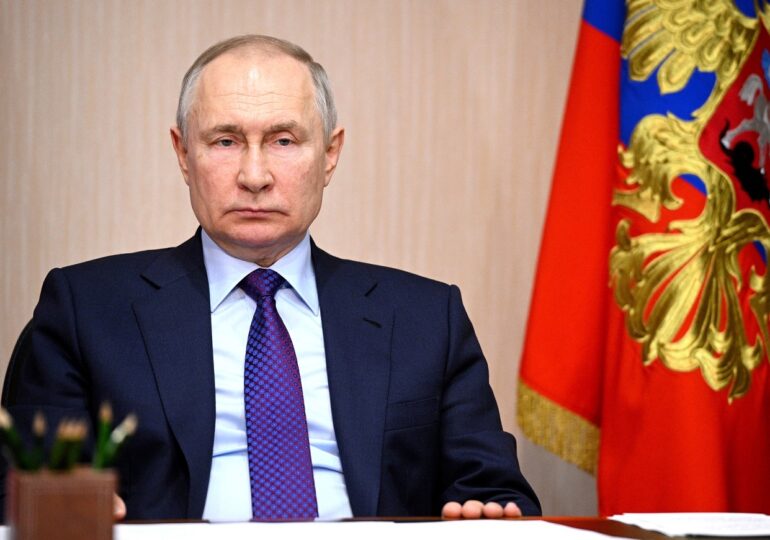Donald Trump has finally understood that Putin does not need his approval or loyalty and has backed down. It is also the moment when the United States have backed down, after decades of imposing themselves, recognizing the limits of power and abandoning the most important peace agreement since the ’40s.
„The fundamental causes of the conflict” – these were the words of a man claiming to be seeking peace. In fact, they represent the core of Russian President Vladimir Putin’s position on what needs to be resolved for peace, after two weeks or three months, depending on how it is calculated, of increasing pressure for an immediate unconditional 30-day ceasefire.
The Kremlin leader has calmly returned to his false theory about the war in Ukraine, triggered, he says, by NATO's too rapid expansion.
Not only did Putin's words foreshadow the conversation between Trump and Putin. Five other words appeared a few hours before and may have weighed enough in Putin's ears during the two hours he spoke with American President Donald Trump.
"It's not our war," said Vice President JD Vance earlier. Resuming his role as the bearer of very bad news for European security, Vance once again supported this remarkable non-threat: namely, that the United States could withdraw from the war - probably both diplomatically and in supporting Ukraine - if Russia does not take steps towards a peace agreement it clearly does not want.
What Moscow wants and is about to achieve
Washington's withdrawal is exactly what Russia wants, and to achieve this coveted result, it seems that Putin doesn't need to do anything else but continue to wage a brutal war, notes CNN.
Just moments after the call, Trump already seemed like a man backing down from the fight. Five days earlier, he was the feverish intermediary, the peacemaker eager to overcome the enmity between Putin and Ukrainian Volodymyr Zelensky to set up a meeting in Turkey. But after the Monday call with Putin, he simply said that Ukraine and Russia need to talk directly, "as only they can." Then he passed the task to the Vatican, mentioning it as a possible meeting place.
The United States may not be completely out of the negotiation process, but they speak as if they want someone else to lead it. The past ten days have been a vivid reminder of how little Putin truly needs Trump or his approval. And the explanation is simple, emphasizes the American television post.
For most of the three years of war, the Russian state media has maintained that Moscow is not only in conflict with Ukraine, but also with NATO, including the United States. The Trump presidency created a small window where the Kremlin could find itself in a better position or could even reduce the impact of Western sanctions.
But that doesn't change the Kremlin's core message: this is an existential war for Russia, about restoring its role in the region. So much pain and loss have been inflicted on the Russian people by the staggering war losses, that achieving average or poor results could significantly limit the longevity of Russia's leadership. This is not a war that the Kremlin can afford to be seen losing.
Trump wants to make "a deal," but Putin has nothing to "buy"
The limits of what the United States can offer Russia at this moment, in terms of leverage, are visible from space. Yes, the United States could tighten sanctions, even as Trump considered last week, adding "secondary sanctions" against Russia's financiers, oil buyers in India and China. But that would cause another trade rift with global powers, with which Washington has just reconciled.
The U.S. could alternatively ease sanctions to convince Russia to make concessions. But this soft approach would irritate European allies and probably would not be effective without practical support from Europe.
Any further steps to inflict pain on Moscow would likely mean that Trump has gone further to punish Russia than his predecessor Joe Biden did. However, this is not the MAGA geopolitical playbook, as it would deepen U.S. involvement in a war that, frankly, does not seem to have an end until one side falters or undergoes a drastic change in political leadership.
Ukraine represents a bleak outlook in 2025. But the central principle of European policy has been the best choice in a world of horrifying options: Moscow could be forced to scale back its objectives only if it sees a united NATO bloc in front of it. The economy, foreign exchange reserves, and workforce could shake - it just needs the war machine to falter. It's bleak, but Europe has no other choice. Ukraine has no choice at all.
Trump felt he had a choice. His business acumen sees no benefit in a long-term investment in a conflict with an enemy with whom you'd prefer to come to terms. There is no deal to be made here. Putin isn't buying anything; he seeks to conquer and take. And Trump has nothing to sell, except for U.S. support for its traditional allies. There is no way for Putin and Trump to both gain something together and maintain their stature.
American leadership has been built for decades around something entirely different than good and small transactions. Inclination towards allies, vast soft power, and military hegemony have made it the world's largest economy, with an unbeatable currency - itself a very good and huge business.
But Trump sees America's role differently - smaller. This may be the moment when Trump finally understood that Putin does not need his approval or loyalty and has backed down. It is also the moment when the United States have backed down, after decades of imposing themselves, recognizing the limits of power and leaving the most important peace agreement since the '40s in the hands of divinity, at the Vatican, concludes the cited source.
T.D.

